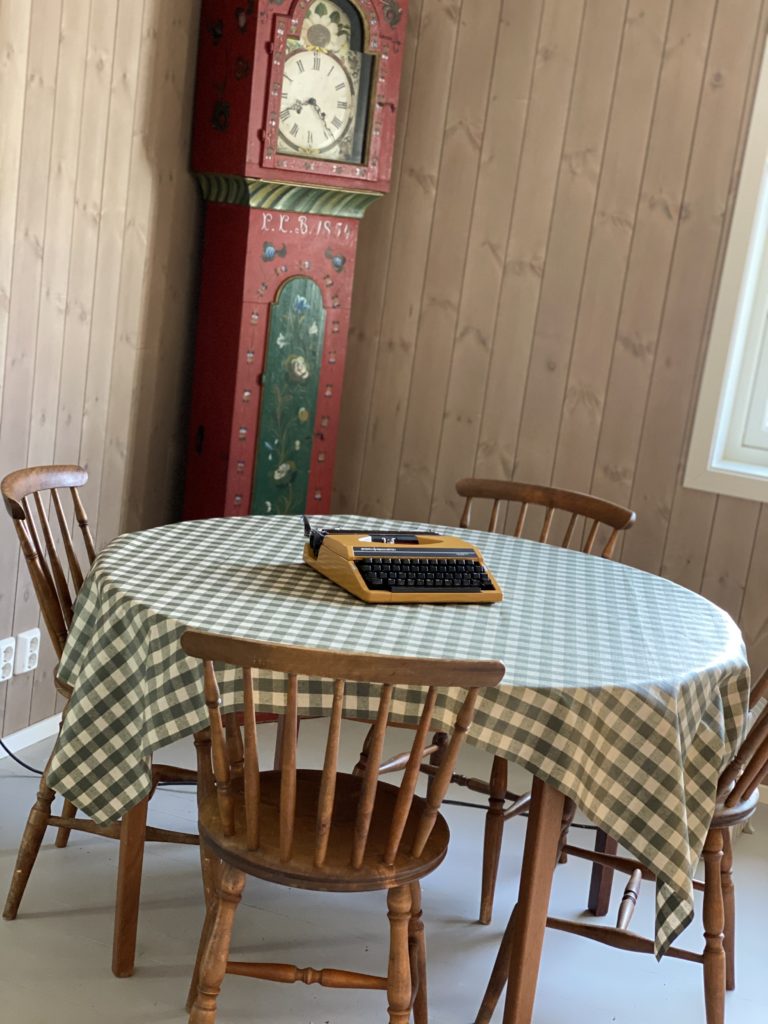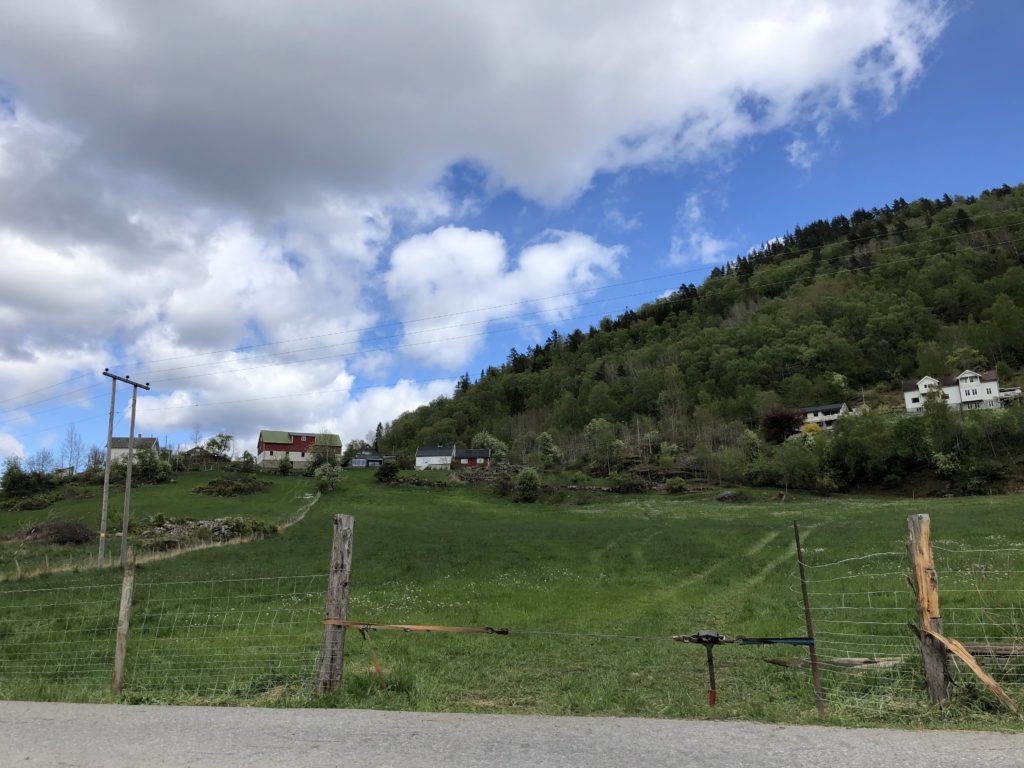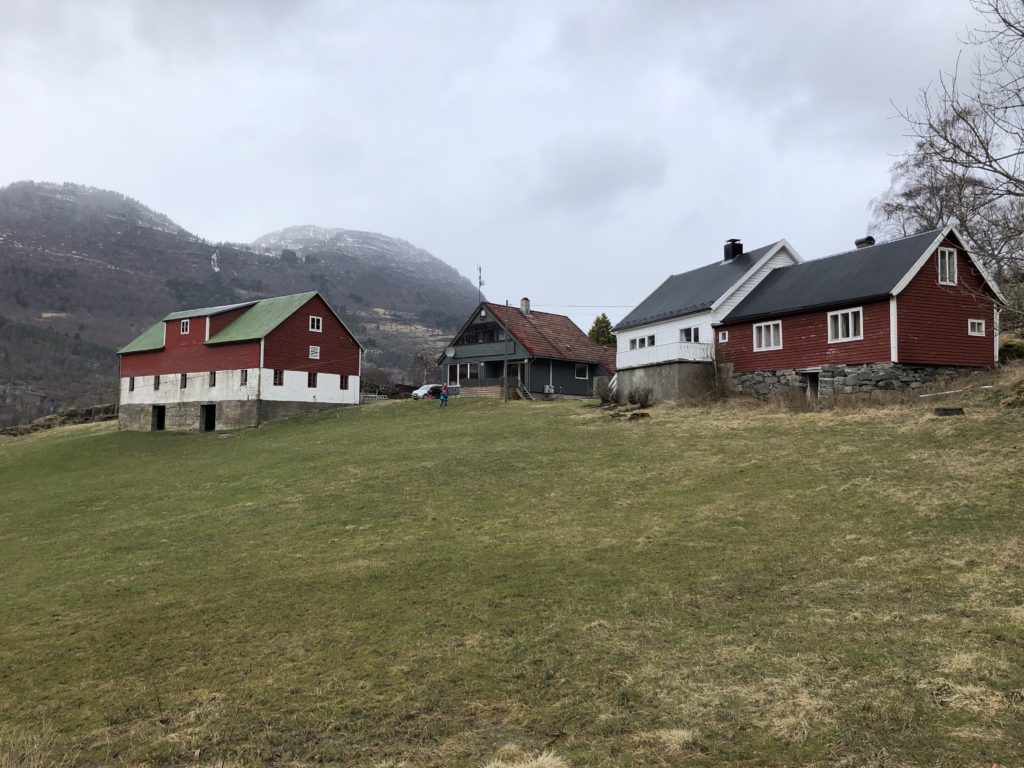«It is better to trip with the toe than the tongue.»
– Swahili proverb
This chapter deals with events related to language in Tanzanian classrooms. During a lesson, many signs are given and communicated both orally and physically. The main issues here are:
How do different languages create different social contexts? Which discourse defines discipline?
I want to discuss how discipline is performed via English and/or Swahili as language of instruction, and I will discuss how language matters for the role of the teacher in his or her classroom.
During my fieldwork, I noticed that both teachers and students switched between Swahili and English, even though the language of instruction in secondary schools de jure is English. Other studies show that code mixing as well is common in Tanzanian schools (Brock-Utne 2009; Mwinsheikhe 2007; Vuzo 2007). Moreover, city people in Asian and African post-colonies switch between their mother tongue and the language of the colonial power (Gumperz 1982: 64). Two versions of such bi-lingual communication are distinguished: code mixing and code switching.
According to my informants, they talk mostly Swahili at home. In my host family, their practices confirmed this claim. Sometimes, they’d talk Kisambaa, the vernacular of the Sambaa ethnic group. Naadir, the oldest of the children, went to a English medium primary school, and thus knew more English. He could still sometimes get verbal correction for speaking English with me at home. You were supposed to talk Swahili there. I got good feedback whenever I tried to speak Swahili. They found my accent amusing and we also found common ground in music.
From a language course we learned a well known Kenyan song, Malaika. This song is popular in Tanzania as well, and I sang it at the dinner table once. It triggered something, which Unni Wikan (1992) labels resonance. By enjoying the food and music from East Africa, we reached mutual plateaus for interaction. My interest in Swahili straightened these connections. During the fieldwork, I went to Usambara to meet Zareenah’s parents. In that setting, it was even more important to know Swahili. Her brother brought me to a school. He didn’t know English, so we talked in Swahili. We got to know each other well, still.
In the villages, people talk less in English. When visiting Usambara, I noticed most inhabitants spoke only in Kisambaa. The headmaster at the secondary school I visited, claimed it was a problem that the students spoke in Kisambaa at school. He told that he needed to punish them by caning them. When children are punished this way for talking their vernacular, it undermines the mother tongue. Somehow, it gets attributed a lower status when kids are caned for using it. Below, I will present some theories on language and some empirical data from Tanzanian classrooms, for practical analysis. Throughout my fieldwork, I had the skilled help of an interpreter.
Structural power
Wolf (1994) thinks it is fruitful to divide power into four forms. One, as an attribute by the person; two, the ability to implement your will on an alter in social interaction; three, to control the circumstances where people can show their potential and interact with others (tactical or organizational power); and four, the ability to structure the other’s possible field of action (Wolf 1994: 218-219).
The Tanzanian educational system is based on the British, and since the language of instruction is English, it can be a medium for structural power. The term structural power refer to a type of power performed through an organization or institution, where the organizational structure is a result of decisions with a certain purpose. For instance, it could be in British interests to keep English as language of intruction, because it leads to sales of books in English published by British presses. During English Language Teaching Support Project no textbooks were published in Tanzania (Brock-Utne 2000: 183). The assignments were give British publishers.
Brock-Utne also found that CCM, tha largest political party in Tanzania, had little influence on the educational policy. No functionaries from CCM were invited to the committee that in 1993 wrote about the Tanzanian education for the 21st century (ibid.: 95). CCM’s ideology, ujamaa and kujitegemea (socialism and subsistence), was in opposition to the donor’s ends. After Ali Hassan Mwinyi became president in 1995, he approved the International Monetary Fund’s (IMF) change management plan for down-payments of debt, which included an acceptance of structural adjustment programs. Rubagumya (1990) claims that the agreement between IMF and Tanzania had certain terms and conditions like free market capitalism, liberalization of the economy, devaluation of currency and reduced public spending.
Clarke (1996: 300-301 quoted in Vuzo 2007: 35) claims that structural adjustment programs like these, are instruments for re-colonization of many developing countries in the South, in transnational banks and corporations» interests. These organizations use English to communicate with Tanzanians and thereby strengthen the position of English in the country. English is also preferred as language, since it’s associated with science, knowledge and education, which all are sorts of power. Below, I discuss these proposals via a theory of linguistic imperialism.
Linguistic imperialism
Linguistic imperialism is a sort of cultural imperialism, «which is connected to language, but also transmitted to other categories , since all of them are disseminated through language» (Vuzo 2007: 124). In Tanzania, English thus is preferred in politics, economics, technology and education. Mwajuma Vuzo compared lessons in Geography taught in English and Swahili in Tanzania secondary schools. She takes this theory in use, to show that Swahili is suppressed as a result of the overaching structure of asymmetrical North-South relations, where language cover fields in line with economic, cultural and political dimensions (Philipson 1997, quoted in Vuzo 2007).
Several of my informants insisted that they»d prefer English as language of instruction, because it would strengthen their cances of getting a good job. One of the mothers in my host family sent her son to a private primary school with English a language of intruction. «At home the kids talk Swahili, so it’s better that they talk English at school. I think so many countries use English as an international language, and that’s why English is necessary for us to use,» she stated.
This corresponds to what Brock-Utne (2000) refers to as a misunderstanding between learning English as a subject, and learning subjects in English. Teachers and students advocated this understanding. Halima Mwinsheikhe (2007) wrote on strategies used to cope with issues regarding English/Swahili as language of instruction. Several of her informants preferred English as language of instruction, because it is «the language for wider communication and with higher linguistic capital» (Mwinsheikhe 2007: 311). Nyerere also supported English as language of instruction. He viewed English to the world, like Swahili is to Tanzania: «English should be language of instruction in secondary education and higher educational institutions, because it will die as just a normal subject» (Vuzo 2007: 32).
Likewise, a student in Form V, Fredrick, expressed that English should be language of instruction, since it would strengthen possibilities of employment for the students. He wanted to be a lawyer, and only minor courts used Swahili, thus he needed English to be a lawyer.
«The main priority is to learn English. I think it’s good that English is language of instruction, because it’s international. You’ll get job opportunities, in stead of using Swahili, only present in East Africa. […] If we shall develop, we need to know English, because other countries are helping us. I can’s say that I dislike English, because my country depends on other countries.»
The way Fredrick spoke, contains an economic and linguistic connection. He established coherence between linguistic competence and job opportunities. Another analogy is to call this a conversion from linguistic to financial capital. English language skills are a premise to get a well paid job, such as lawyer, since English is used in all higher courts of Tanzania (Lwaitama and van Grieken 2006).
During British colonial administration, English language knowledge was an important skill for hiring staff in the governmental administration (ibid.: 24). Johnston et al. (2000: 164) defines theory of dependence by calling it a theory which explains the «blocked or distorted way countries in the third world develop, as a consequence of the power external countries (colonial powers or post-colonial ones) have to exploit countries in the periphery» (quoted in Vuzo 2007: 124). Those who support this theory, think the rich countries need a group of poor countries to secure their wealth.
Africa is technologically, financially and military wise depending on industrialized countries in the North. During the colonial periods, the colonial powers introduced their languages in the educational systems, and so these languages were means educated Africans used to communicate with colonists as well as each-other. In this manner, these languages developed to become international languages. Philpson (1992) points out that these phenomena raised a few world languages on top, with lines of local minority languages at the bottom. Increasing inequalities between languages is what Philipson frames as linguistic imperialism. To learn colonial languages, was also a way of mental adjustment. Brevie, a governor in French East Africa, wrote in 1930 that «the brain of the native can be disciplined by mastering French orally» (Brock-Utne 2000). Similarly, the French author and lawyer J.M. Servan (1737-1807) described the power of an idea: «A silly despot will lay ties on his slaves with iron chains; but a true politician ties them even stronger with the chains of their own ideas; it is by the stable point of reason he secures the end of the chain; this chain is stronger because we don’t know what it’s made of and we think it is our on work; misery and time decay the iron and steel ties, but they are power less against the traditional union of ideas, they can only tighten them further; and the most solid empires are founded upon the soft fibers of the brain» (Foucault 1979: 102-103).
Foucault views this form of power as a new corporeal power. Even though he addresses the law’s power over humans, the perspective can relate to the power of language over the colonized. To be educated, Africans need to think and express themselves in English, and so become disciplined by English as language.
Words as means of barter
A conversation is an exchange of phenomena. This contains communication as an economy of statements (Allen 1999: 71). If the language of instruction is English, and the students don’t master the language, it’s less likely they contribute to this economy. English can so become a means of power that silences the students» abilities to express themselves. Research (i.e. Roy-Campbell & Qorro 1987; Criper & Dodd 1984; Mwinsheikhe 2007) shows that students, and to a certain degree also teachers, have difficulties learning in English. Halima Mwinsheikhe (2007) relates a lack of English language knowledge to the educational policy, and claims that students are passive in the lessons as a result of insufficient linguistic competence.
When Swahili is in use, the students increase participation. As we will see, Swahili is in a high degree used for social messages where the students are involved directly. Swahili activates thus a social capital, while English somehow activates a cultural capital (Bourdieu 1995). I assert that there is more reciprocity involved when the language spoken is Swahili, as compared to English. In those cases the teacher talks only English, he or she gets less response than when Swahili is spoken.
The debate on language of instruction
For some time there has been a debate regarding which language should be the language of instruction in Tanzanian secondary schools. During German colonial administration (1886-1920), Swahili was administrative language and language of instruction in the four year primary school (Brock-Utne 2000). During British colonial administration, English became administrative language in Tanganyika, while Swahili still was language of instruction in the primary school for African children. Then it was different educational systems for Africans, Asians and Europeans. In the 1950s, English officially became language of instruction from Standard 3. A study preformed by the national Swahili council (BAKITA) showed that students in the secondary school had major difficulties learning subjects taught in English, and BAKITA argued that Swahili should be language of instruction in both secondary and tertiary education (Mlama & Matteru 1978, quoted in Vuzo 2007: 31).
The Makweta commission (1982) recommended to strengthen the teaching of Swahili and English, and advocated for a change of language of instruction in secondary schools from English to Swahili. In January 1985, Swahili was intended to be used in Form I and also in higher education at a later stage. J. Makweta, then minister of education, said in August 1983 that these changes would not take place anyhow. According to him, it was the government that decided to stop the progress of Swahili in higher levels of education (Brock-Utne 2000: 179). Later he claimed that university employees from the Institute for education reversed the decision. According to Bourdieu’s theories on language and power, this can be attributed as a way for the elites to keep their power. «Relations of communication are also relations of symbolic power, where power relations between actors or their respective groups are actualized» (Bourdieu 1991: 37).
In the Summer of 1984, a study financed by the British government focused on how the English proficiency was in different levels of the educational system. This study showed low levels of English language knowledge at most schools, concluding that there would be too little efficient learning in the schools. Furthermore, the study estimated that as much as 75 % of the teaching in Form I was performed in Swahili. A new study by Qorro and Roy-Campbell in 1987 confirmed these trends: 94 % of students in secondary schools didn’t comprehend the textbooks, even with help from the teachers. To out of three teachers in the test group thought their students» abilities to read English were insufficient. The researchers concluded with a recommendation of a shift from English to Swahili in secondary schools (Vuzo 2007: 56).
The study from 1984 also recommended that the levels of English knowledge should be strengthened. This recommendation is seen in context with the English Language Teaching Support Project, which the British government would fund under the condition that English was maintained as language of instruction (Brock-Utne 2000: 180). The rationale was that English was necessary as the language for technological development. Several teachers I met underscored this claim as an argument against Swahili as language of instruction in secondary schools. During a conversation with a physics teacher as Mtaa Secondary School, he answered this on why he didn’t want to teach in Swahili: «If you teach in Swahili, how will you communicate with the others? How will you teach biology and physics? You will need foreign material. How will you explain anatomy in Swahili? To whom will you disseminate the knowledge? There is a need for communication with people from other nations. All the material is imported, anyhow.»
This attitude was common among teachers I met. It can resemble an imagined conception of knowledge as something external, even something imported from abroad. Several informants argued that teachers would need retraining if the language of instruction would be changed to Swahili. The headmaster at Mtaa said: «I am educated in teaching math, but if I should teach it in Swahili, I wouldn’t have managed. I only know how to do it in English.» I experience this as a manifestation of an educational system that alienates teachers and students to their own mother tongue.
Helen Verran (2001) addresses similar issues in the book Science and an African Logic. She taught math in Nigeria. She claims that English and Yoruba contains respective logics regarding math and world view. While English language uses the 10 digit system, Yoruba takes the 20 digit system in use for quantification. Furthermore, it is natural for students and teachers to group quantity in larger units as stead of measuring in for instance centiliters. Her informants also switched codes in lessons.
Verran has a relativistic approach to math. While numbers mainly are adjectives in English, they are mainly adverbs in Yoruba. She argues that quantification is as logical and abstract in Yoruba as in English. Some studies have shown that African children have issues with qualitative differences, but cope well with manipulating numbers (ibid.: 124). Verran claims this has led to an inadequate generalization of primitive quantification in African societies.
Below, I will present empirical examples where informants switch between Swahili and English. Such a switch may be also a switch from formal to informal context, while an opposite switch can be a switch back to an «academic,» formal context. This somehow confirms English’s status as a scientific language.
The main argument for ending English as language of instruction, is that it is a barrier for children’s abilities to learn subjects. Dr. Martha Qorro, University of Dar es Salaam (UDSM), claims that English as language of instruction not only reduces student ability to learn the academic content, but that is is an obstacle to learning the English language too. She thinks that the students are taught an inadequate version of English, since most teachers don’t have good mastering of the language (News from the Nordic Africa Institute 2007). As a conclusion, the students have difficulties expressing themselves in English.
Not all agree that the language of instruction should be changed. Dr. Michael Kadeghe, also from UDSM, contends that English should still be language of instruction. He argued that Swahili nor is the mother tongue for the majority of Tanzanians. He claimed that Swahili doesn’t have a sufficient vocabulary to be used in teaching certain subjects, and that it could be a barrier for technological progress. As an example, the English words refraction and reflection are both translated to pinda in Swahili. «When you are presented such a concept, it creates a wrong impression. You loose parts of the original intention» (Kadeghe 2007 [interview]).
Another condition is that formal education was established by the colonial powers. Kadeghe therefore argues that the education should be instructed in English, since Tanzania doesn’t have a «indigenous» education. The poor results from national exams is a result of the public school. «The problem is public schools; no books, incompetent teachers and no conclusive environment. Public schools perform low because of this» (Kedeghe 2007 [interview]). Michael Kadeghe wrote several textbooks in English and is headmaster in a private secondary school in Dar es Salaam.
A third approach is to have a bi-lingual education, as the current situation in Tanzania is. Wales and Canada have also such arrangements. Still, it can be problematic for students to start secondary school, when they’ve already learned Swahili in primary school. The researchers Criper and Dodd estimated that 75 % of Form I lessons were given in Swahili (Brock-Utne 2000: 179). This comes as no surprise according to my experience with Tanzanian secondary schools. A teacher, Mr. Machemba, who taught in Form I, told that he used Swahili because the students didn’t understand much English, and furthermore they were so shy. Kadeghe stated that teachers use both languages in universities and secondary schools. Vuzo (2007) argues that the language of instruction in secondary schools is a mix of English and Swahili, in reality. A report from BAKITA concluded that «English as language of instruction is dysfunctional, while Swahili as «support-language» is officially prohibited» (Vuzo 2007: 11).
When the interview was done, Dr. Kadeghe spoke Swahili with me. «Now the formal part is finished,» he smiled. Even though switching and mixing of languages officially is prohibited, it happens all the time. Every day I frequented Mtaa, I heard examples of this. Below, I elaborate some situations where language switching is used as contextual markers.
The school as prose
Most of the lessons I observed, contained shifts between English and Swahili by both teachers and students. The switch often changed the social meaning in the communication and thus also the interaction in the classroom. From my observations, more than just the language changed. It was as if some already given premises for interaction were present for students, guiding their understanding of the teachers» code switching. This paragraph will try to understand these premises, in light of the teacher role.
Research shows that bilingual persons who switch codes often, master both languages very well (Aarsæther 2006: 43). Thus, code switching can be something more than a coping strategy to compensate for a lack of ability in one of the languages. However, I experiences teachers who used Swahili to clarify and elaborate some topics, but only rarely. Usually, code switching seemed to contain a shift of either recipient for the message or the topic of the conversation.
The use of language changes social contexts in schools. It was no coincidence when the switch took place in the processes of interaction. Frequently, the use of the two languages stood in contrast to each-other: Informal topics were communicated in Swahili by teachers, while the subject was taught in English. My empirical data proves code switching and code mixing as every day activities among both teachers and students. Students would use standard English while talking to the teachers, while they spoke Swahili when addressing each-other. This can lead to different interpretations. John Gumperz (1982: 30) presents a scenario where an African American student switches between standard English to the teacher, while using «black English» to talk to fellow students. The student asked the teacher for a recommendation to use in an application for a scholarship. Then he told his fellow students: «Ahma git me a gig!» «I will get help.» Someone thought he switched to «black English» to justify the request, and to tell the other students that he needed to «follow the rules us black people must do to survive in the world dominated by the white» (ibid.: 32).
To examine the Mtaa students» experiences of the phenomenon, I performed a survey where 26 students answered questions on this topic among others. All respondents were Form VI students, with long schooling experience. 22 students confirmed that teachers mixed English and Swahili in the lessons, 2 answered that some teachers do, 1 responded that teachers only use English and 1 didn’t answer. On the question if students mix languages, all students confirmed except one who didn’t answer.
This only gives a small sample, but the results indicate that bi-lingualism is an important part of schooling, practiced by teachers and students alike. Halima Mwinsheikhe (2007: 248) conducted a study where code switching was mentioned by 38 of 42 students and 2 of 4 teachers. Mwinsheikhe viewed code switching as a coping strategy to disemminate the academic content, while I argue that teachers also use it to create dynamics in social interaction. Below, I present four teachers, two who mixed languages and two who didn’t. Then I analyze which differences this brought.
Tony
Tony was a recent graduate, and started working at Mtaa in February 2007. He talked to me in a tea break in the staff room, and we got acquainted. I will now present one of his lessons, which I observed.
He was substitute in a physics lesson for Form II. I taped the sound to have better basis for following analysis. Still, the body language, smell and other sensory impressions do not get recorded on the tape. Tony took code switching and code mixing in use during this lesson. He could start a sentence in English, an then elaborate in Swahili. Sometimes he stated full sentences in English, and the translated them to Swahili. He talked mostly in English in the beginning of the lesson, for then supplementing information in Swahili. The lesson was like a lecture: The teacher wrote on the blackboard and explained. The topic was work capacity and power. When he spoke in Swahili, the students became more attentive, they would for instance look up and take notes. Their body language could become more active. He also asked questions in English, but got little response. At the end, the students were assigned to solve a task. Following the lesson, I asked Tony if he mixed languages to increase student understanding.
«Yes, as we learned at the college. They told us that when you teach, there is some causality you have to emphasize. To do that, we use Swahili. We use it now and then, not all the time.»
Tony argued that language switching emphasized causality. Implicitly, I interpreted him to say that the students» English mastering was insufficient for understanding causality. Thus, it supports the claim that Tony used code switching as a coping strategy. In contrast to Mr. Mlaki, who we will get known with below, Tony used mainly code switching.
Mr. Machemba
Older teachers at Mtaa viewed language somewhat differently. Mr. Machemba had taught for 33 years, and as an Mtaa employee since 1998. He emphasized Swahili’s importance for Tanzania as a nation. «There is not one particular Tanzania culture […] the culture is based on a common idea of one language and one school for all religions and tribes,» he claimed. Compared to Kenya, it was more peacefulness between ethnic groups. When it came to language of instruction, he meant that is should either be English or Swahili, not a mix. He taught Swahili in Form I among other subjects. He believed that Swahili one day would become language of instruction also in secondary schools, but that would require great resources. He answered like this when asked whether Swahili would get further Anglicized or not.
«No, that won’t happen. Swahili is becoming an East African language […] the whole south-eastern zone speaks Swahili, even though they don’t use it officially. It’s not difficult for us to communicate with people in Mozambique. They speak Portuguese, but know Swahili. Many South Africans speak Swahili in addition to English. If you go to Somalia, it is used; and in Rwanda and Burundi. Uganda has made it an official language, and it is taught. In Sudan, it is spoken by many, not to mention the Middle East. We had a guest, who lived here when the East African railway was built. These people from India, Sidhi, […] they spoke Swahili, and went back to India. In that area, they still speak Swahili, I’ve been told. The French brothers and the German linguists started with Swahili grammar, and with Swahili lessons. The Germans taught in Swahili and administered in Swahili. Our primary school took Swahili in use at that time. Then the British arrived and the language policy got indecisive. If you read the history of Swahili, the British were unwilling to adapt the language usage. The encouraged use of tribal vernaculars in Kenya. Even political meetings in Kenya were concerned with tribal politics. That explains why Kenyans are influenced by tribal belongings.»
The teacher was proud of Swahili, and viewed the language as a reconciliation factor between ethnic groups in Tanzania, as opposed to Kenya, where relations were more tense, according to him. An effect of the tensions, got their outplay in the conflicts following the 2007 Kenyan general election. Several of Mr. Machemba’s children studied in Kenya. They could report that someone would rise in a congregation and say, «I am Kikuyu, I come from Ambo. I am Luo, I come from Kisu.» This was in college level. Mr. Machemba thought this was nonsense in Tanzania.
«Here anyone will rise and say, «I am this or that, and I come from Kagera or Kilimanjaro.» It is not a tribe anymore. People can sit and talk in tribal vernaculars when they are sure that they have the same background. But they never talk about tribal supremacy here.»
He was of Chagga ethnicity, who somewhat stereo-typically are known to be well educated business people. He commented this claim with historical conditions. Since missionaries came there and established formal education, they developed faster. Where missionaries put their feet, is where you find better educated people. he contained.
Mr. Lauwo
Mr. Lauwo was the teacher I first observed when I came to Mtaa. He was my only example of a teacher who only used English in his teaching. Above, I wrote that code switching between English and Swahili could signify a shift of context. The teachers would often speak Swahili when they checked if student comprehended the lessons, or when they wanted the students to relax with a joke. When the teacher took the role of a disciplinarian, he or she would more often talk Swahili. Below, I will go through a lesson in Economics by Mr. Lauwo, to illustrate an everyday setting with English as language of instruction. My contention is that teachings may appear less dynamic and interaction based when the language is only English, than it would have been if the teacher code switched between English and Swahili.
Mr. Lauwo’s teaching style was to mainly lecture and write full sentences on the blackboard. He dressed with shirt and a tie. Because of the sunshine, I found it hard to read the text on the blackboard. While he wrote, there were disturbance by some students, but he ignored the noise. After writing several longer sentences, he asked: «With which methods can you calculate national income?» No-one answered. The teachers pointed to several students, and the third one gave a silent answer. Mr. Lauwo asked his class if they heard the student. They did not, so he had to repeat.
Two students in the back of the classroom were chatting together instead of paying attention. As a punishment, they had to rise up and state their names. They stood like that for a minute. The students in front were more attentive and appear to take more notes than average. I tended to sit in the front too in those lessons I observed. This was mainly because I came too late to sit anywhere else. Presides, the students I became acquainted with, sat often in front as well. Sometimes they held a seat for me. As a consequence of this, I got a small note addressed mzungu: «What’s up? Why don’t you come to us in the back and say hi!» I followed the request the next day. I learned that it was far harder to see the blackboard and to hear the teacher. The students were murmuring in Swahili to each-other and sent small paper notes. A student contented that those in the back liked to talk and tell stories. «Most of us stay in the front. Those in the back are afraid to be asked questions.»
The lesson continued in the same manner. Mr. Lauwo wrote the name of a range of financial institutions. In-between he would ask questions. One student performed the law of demand and supply. The lesson was in English only, and did not take use of informal jokes or small talk. A conclusion was: «I hope I am clear that this is how the law works.» That was the end of the lesson, and the teacher left.
The legislation permits only English in secondary school lessons, with a few exceptions. This can be a barrier in the education system, for both students and teachers, since English is not equally mastered by all. Another lesson I participated in, was somehow limited by simple feedback in English from teacher to students. If the students succeeded, the teacher responded: «Good girl/boy.» English as language of instruction seemed to decrease the differentiation abilities in his instructions. Mwinsheikhe (2007: 271) argues that the lack of English knowledge is significant for both teachers and students, both in numbers and the seriousness of the problems.
The teacher may be limited to play out his or her role when English is a communication barrier. If a teacher will say something funny or off the record, he often says it in Swahili. I interpreted this to be an effect of language mastery for involved stakeholders.
Mr. Mlaki
When teachers talked in English, the students seemed to understand that that was the time to take notes and «reproduce» whatever the teacher said. If the language would be Swahili, the context more likely could be humorous or related to discipline. Goffman (1974) used the concept frame to describe how people interpret situations. Likewise, we can imagine that the teacher’s language framed how the content could be understood. No need to say, the frames are not experienced the same of the participants.
Mr. Mlaki was among the teachers at Mtaa who code switched the most. A lesson I want to present, was in the subject Geography II (Demography). The empirical data may illustrate my claims. Mr. Mlaki taught Form VI HGL (History, Geography, English Language) about alternative sources of energy in Tanzania. He switched between English and Swahili during the lesson, and wrote keywords on the blackboard. «The world is well equipped with numerous sources of power and engine fuel like fossil fuels, petrol, crude oil, and so on.» He continued with explanations about bio gas. After two sentences written, he asked if everybody understood. The question was in Swahili. The students confirmed, and he went on. A few minutes later, he cracked a joke in Swahili, which made students laugh. «Are you together, Stella?» he asked. He made fun of, or with, the student next to me, Stella. He continued: «Carolina is a place where cotton is grown. Why then do parents name their children Carolina? Or why do people call their children Stella when it is the name of a beer?» «It is not a beer, it is a star!» Stella swiftly replied. The answer seemed to take him by surprise.
By his switching of topics, languages and styles, I interpreted his lesson as a memorable hour of work. His emphasis was in disseminating the subject, but his breaks and humor in Swahili gave the lesson something extra, I believe. The switch to Swahili could activate a social community incorporated in the language learned. Stella elaborated on this after the lesson: «He is a good teacher. We like him so, because we are never bored in his lessons.» She continued that he might be quite strict, although he joked much. As teacher, he framed the lesson with diverse teaching strategies coaxing the students» attention. Tony, in comparison, used code switching more a a coping strategy. Mr. Mlaki could moreover create a thematic order with his two languages. He stated full sentences in each language. I will go further into a discussion of English and Swahili as order or disorder below.
According to linguistic socialization theory, the process whereby an individual becomes a competent member of a community, is significantly realized through language (L. Moore 2006). In this lesson, as several others, parts of the teaching technique could be characterized as rote learning. The students were supposed to repeat the information in the same manner as disseminated by the teacher. Leslie Moore (2006: 121) argues that this kind of memorization «socializes children in the second language and the associated ways of doing, being and feeling.» A claim can be proposed that when the teacher applies English to disseminate subject content, and Swahili to communicate informal ideas, this can socialize individuals to experience English as a professional language and Swahili as an applied language. When Mr. Mlaki switched to Swahili, it activated social schemas for the use of Swahili. It appears to be more associated with everyday living, enjoying life and each-others ideas and jokes. From a study of Quran schools in northern Cameroon, L. Moore found that children learn to develop linguistic and cultural competences from linguistic socialization where Arab and French are in use. In a similar manner, students in Tanzania can learn linguistic and cultural codes by switching and mixing language. An issue can arise if the teacher’s mastery of one language is poor. This contention has been important in the debate about language of instruction.
If all instructions should be in a foreign language, it requires that the teacher possesses a vocabulary both for classroom administration, organizing, discipline, feedback, informal talk and to speak of language as a topic (Vuzo 2007: 10). As a consequence of my experience of frequent Swahili use for several of these activities, teacher may lack some of the language proficiency. However, as we saw in Mr. Mlaki’s Geography lesson, code switching may compensate a lacking vocabulary. During this lesson, I did not observe severe discipline issues. Through his communication, he set up a thematic context along with a linguistic contrast.
The teacher role via words
In this paragraph, I would like to discuss how a teacher makes and underscores his or her role through language application. An example is drawn from a Physics lesson. The teacher handed back assessed tests. The results were poor. «Pull up your socks!» the teacher said. The best result was 57/100, he explained. The students clapped. The lowest was 10, and the students clapped ironically for this too. The teacher went through the questions during this lesson. A few students answered on the blackboard. The teacher asked «Are we together?» every now and then. Someone thought this question was rude. It implies a status difference when the teachers ask if the students are following the content. Code switching can also signify a status difference, by implying that students do not master English sufficiently. Another symbol is the rod. The rod was placed on a desk presides the teacher’s desk the whole lesson. An interpretation of the rod as a symbol of the teacher’s power and a means of deterring misbehavior. A student got three blows from the rod by the teacher during this lesson. When addressing a specific student, the teacher applied Swahili, and when addressing the class with the subject, he spoke English. I argue that this established a relation between the personal and Swahili. Quite often teachers would make sarcastic remarks. An example to illustrate this can be the teacher ridiculing a student by saying: «You have repeated Form V two times, and you are still silly.»
Colonial hangover
Professor Justinian Galabawa from the University of Dar es Salaam perceived the Tanzanian educational system as suffering from a colonial hangover. Galabawa had worked a long time to change language of instruction in the secondary school.
«The students can learn English as a language, not through physics. Since the Asian economy is strong, we should rather learn Chinese. In 30 years, the economy will be dominated by Japanese or Chinese. The market is there. I can tell you: If a political decision is made next year, we will start teaching in Swahili. The National Swahili Institute has written books, but we are caught in a colonial hangover mentality. The industrial revolution in England started when they used English in stead of Latin. Look at the comparative advantages: We do not take basic resources in use. 35 million people speak Swahili. All teachers can speak Swahili (Galabawa 2007 [interview]).
English as a language of instruction can be particularly alienating in the villages. Another claim is that is widens the gap to Swahili as an academic language. An argument for English, is the benefits of English proficiency on the labor market. English may have a higher status, by increasing job prospects in Tanzania and abroad. Galabawa rebutted these claims:
In rural areas, English is a dead language. English knowledge among teachers is poor. We need a major project: «What is knowledge? What is development?» Education is mystique, some say that physics is not part of Tanzanian culture. It is nonsense, that it is British culture. Make them concentrate on Swahili. You do not need to go via English to understand what a flower is. English is a language that is not part of the culture. I have also problems explaining concepts in English. (ibid.)
Still, students need to learn English to get higher education. Parents who can afford it, tend to send their children to private primary schools with English as language of instruction. I visited such a school in Dar es Salaam. It was built in 2002, and had open and bright classrooms. The three lessons I observed did not contain any punishments. The teachers did not code switch either. The headmaster thought English use was the main priority when parents sent their children to this school. «The children who are taught in English in primary school, do not face the same problems in secondary school. It is prestige for educated groups to speak English. Now we have a colonial mentality, that if you speak Swahili, you are one type of class, and if you speak English, you are another [lowers the hand].»
The choice of words by this headmaster confirms the assertion of Swahili as far from being recognized as an academic language. In signs, students are encouraged to speak English. Bourdieu (1991: 167) viewed the language of communication as a culture that both unites and separates. It furthermore legitimates distinctions by fording other cultures to define themselves by the distance to the majority. The headmaster of Mtaa made an interesting comment on Swahili: «We still need English as an international language. Yes, great, we need English, but then if we go back to Swahili. Our language has not developed enough to mould students in secondary level.» Here the headmaster applied several metaphors. The language is not developed enough and that language moulds the students. English has more power than Swahili. Still, English proficiency is not excellent among the youth. The English teacher Mr. Mlawi gave Form V an answer to why this may be.
Things were better before
Mr. Mlawi was normally well-dressed and wore a confindent smile when teaching. He would often shoot sarcastic remarks at students. His lessons were performed mainly by heart, and I perceived his Enligsh as very good.
The present lesson will illustrate his attitude to the condition of Tanzanian schools. He showed relations between ideology and practice in Tanzanian politics. His style was energetic, by walking around the classroom. The class was Form V HKL with approximately 80 students present. He started by addresing the topic of the lesson. «I will explain why it was possible to learn English more efficiently in the 1950s and 1960s than today. As students, you should know this [spoken in English]. You parents» generation speaks better English than you. You talk blah blah blah [spoken in Swahili].» The students laughed out loud when he made fun of them. He said it in Swahili, somehting which illustrate my contention of language as a contextual marker. By switching language, he prepared the students for something informal. Moreover this could be a joke, but also it may be discipline instructions. Mr. Mlawi went back to the topic, and switched thereby language too.
The situation of Swahili before 1967 was this: Students raed local magazines in Swahili. They do not learn English, only via pop music and pornography. Thus was the situation before the Arusha declaration. The objective of the declaration was to make the Tanzanian population self-supported; an African reaction towards colonialism.»
He continued to claim that it was fewer students in the classes before, and that the teachers were competent, the curriculum comprehensible, and they also had oral exams. «Then, the students worked properly to learn English.» He stated four reasons for the present misfortune: 1. No competent teachers in most schools. 2. No local role models to imitate. 3. Tanzania has wto official languages. 4. Lack of teachers» materials.
«How can you expect students to learn English without the necessary books? The government does not care about the use of English.»
Another claim was that most jobs go to Kenya or Uganda. A Swahili proverb was used to illustate this. «Someone you consider evil, wears shoes you consider to be medicine.» You can dislike someone, and still envy his or her possesions. Many of the research participants talked about going to Kenya or Uganda for studies. Nathifa wished to study at the Makerere University in Kampala. Thomas preferred English since «when you go abroad, aome of the machines and PCs are in English.» Still, he preferred to talk Swahili, «because it is my mother tongue, and it protects our culture.»
During my fielwork, I got an idea that English application led to more use of corporal punishment, since students can get insecure and perform lower. As a consequence of lower performance and less contributions in the lessons, they can risk getting more punishment. I made an informal questionnaire which somehow confirmed this claim. According to the students experice, 55 % of the participants confirmed more use of corporal punishment when the language of instruction is English. 14 % rejected the claim, and 31 % thought it did not make any difference.
Reciprocity
As mentioned, communication can be considered as a transaction. Mr. Mlawi is an example of a teacher with great linguistic capital since the language of instruction was English. The students seemed attentive to his body langugage and lessons in general. His criticism of students was made with tongue in cheek. His language switching gave a sense of order to the lessons, for me and also for the students, I think.
Language can be a form of wealth (Bourdieu 1991: 43). «Establishing a linguistic market creates the conditions for competion where compentence can function as linguistic capital, which produces a profit of distinction for every social barter» (ibid: 55). English makes a profit for distinction both in schools and in the labor market in Tanzania.
Tony, in comparison, had less order in his lessons, since he more used code switching as coping strategy. I perceive his use of the rod on the whole class made an imbalance between the teacher and the students. By hitting the students, he caught their attention, but the students lost their sense of safety that can be a condition for learning. In relation to what Tony said about causality, Swahili worked as a catalysator for attention. Swahili was a discursive marker meaning that here comes something important or disciplining. Mr. Mlawi also took Swahili in use when making fun of the students for their lack of English proficiency. The continuum formal – informal can be view in comparison with the relation English – Swahili.
















